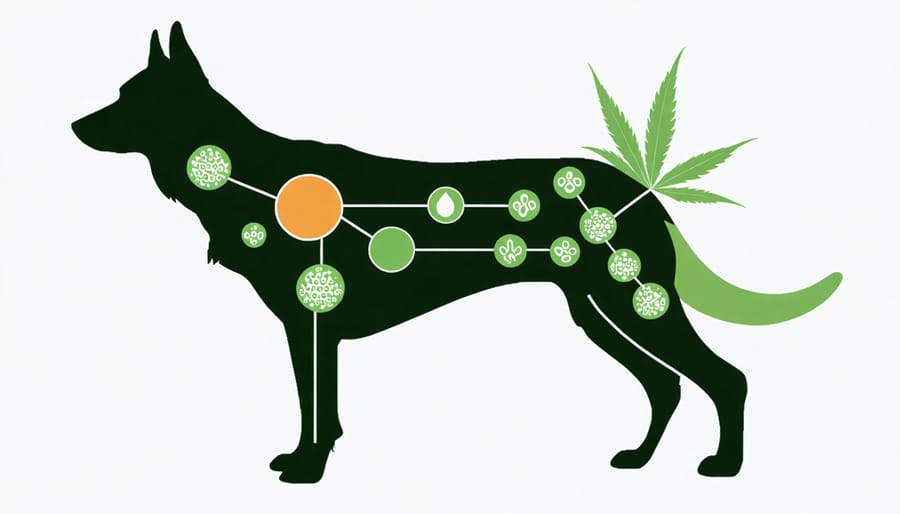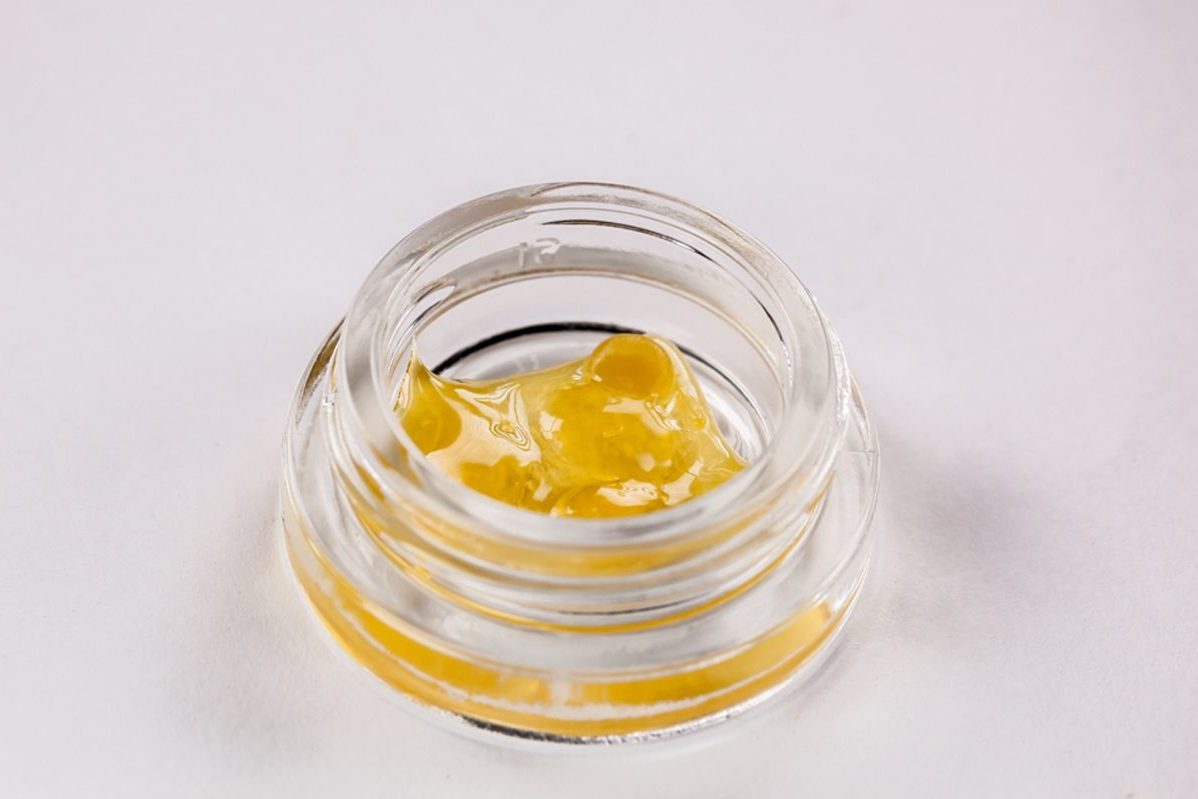CBD oil has emerged as a groundbreaking natural solution for pets, offering relief from anxiety, chronic pain, and inflammation without the harsh side effects of traditional medications. As more veterinarians and Dopeboo Psychedelic Products researchers explore its potential, scientific evidence continues to support CBD’s therapeutic benefits for our four-legged companions. From senior dogs struggling with joint pain to cats battling stress-related behaviors, this hemp-derived compound works by interacting with pets’ endocannabinoid systems – the same biological network that helps maintain their overall health and wellness.
Recent clinical studies demonstrate CBD’s remarkable ability to reduce seizure frequency in epileptic pets, improve mobility in arthritic animals, and calm anxious behaviors during thunderstorms or separation situations. What makes CBD particularly appealing for pet owners is its natural origin and strong safety profile, providing a gentle yet effective alternative to conventional pharmaceuticals. Whether you’re seeking to enhance your aging pet’s quality of life or looking for a holistic approach to managing specific health conditions, understanding CBD’s benefits and proper usage is crucial for making informed decisions about your pet’s wellness journey.
How CBD Oil Works in Your Pet’s Body

The Science Behind CBD’s Effects
CBD works by interacting with your pet’s endocannabinoid system (ECS), a complex network of receptors found throughout the body. This system plays a crucial role in maintaining balance across various bodily functions, including mood, pain sensation, inflammation, and sleep patterns.
When CBD enters your pet’s body, it primarily interacts with two types of receptors: CB1 and CB2. CB1 receptors are predominantly found in the brain and nervous system, while CB2 receptors are located throughout the body, particularly in immune cells. Unlike THC, CBD doesn’t directly bind to these receptors but instead influences them indirectly, which explains why it doesn’t cause any psychoactive effects.
CBD also impacts other neural pathways, such as serotonin receptors, which affect mood and anxiety levels. It can enhance the body’s natural production of endocannabinoids – compounds similar to those found in cannabis plants that help maintain internal balance. This interaction helps explain why CBD can have such wide-ranging effects on your pet’s well-being, from reducing anxiety to managing pain and inflammation.
Differences Between Human and Pet CBD
While CBD oil works similarly in all mammals, there are important distinctions between human and pet CBD products. Pet formulations are specifically designed with our four-legged friends in mind, taking into account their unique physiology and sensitivity to cannabinoids. For instance, CBD oil for felines typically comes in lower concentrations compared to human products, as cats and smaller pets require more precise dosing.
Pet CBD products often include pet-friendly carriers like fish oil or bacon flavoring to make administration easier. They’re also formulated without certain ingredients that might be safe for humans but harmful to pets, such as artificial sweeteners or high concentrations of certain terpenes.
Dosing calculations differ significantly between humans and pets, primarily based on weight and species sensitivity. While humans might take a standard dose regardless of small weight differences, pet dosing requires careful calculation based on the animal’s exact weight, typically measured in milligrams per kilogram. This precision helps ensure safe and effective treatment while avoiding potential overdosing.
Proven Health Benefits for Pets
Pain and Inflammation Relief
Research has shown that CBD oil can be particularly effective in managing pain and inflammation in pets, especially those suffering from conditions like arthritis or chronic joint issues. A 2018 study by Cornell University found that dogs with osteoarthritis showed significant improvement in pain levels and mobility after receiving CBD treatment. This natural compound works by interacting with the endocannabinoid system, which helps regulate pain and inflammatory responses in both humans and animals.
CBD’s anti-inflammatory properties can help reduce swelling and discomfort in pets’ joints and muscles, potentially improving their quality of life without the side effects often associated with traditional pain medications. Senior pets, in particular, may benefit from CBD’s pain-relieving properties, as they are more likely to develop age-related joint problems and inflammatory conditions.
Multiple veterinary studies have demonstrated that CBD can help decrease the production of inflammatory markers in the body, leading to reduced pain and improved mobility in affected animals. This natural approach to pain management has shown promising results in both acute and chronic pain conditions, making it an increasingly popular option for pet owners seeking alternative treatments for their furry companions.
Anxiety and Stress Management
Many pets experience anxiety and stress from various triggers, including thunderstorms, separation, travel, or unfamiliar environments. Research suggests that CBD oil can help manage these conditions through its anxiety-reducing effects on the endocannabinoid system. Studies have shown that CBD interacts with serotonin receptors in the brain, helping to regulate mood and emotional responses in both humans and animals.
Pet owners often report noticeable improvements in their pets’ behavior when using CBD oil for anxiety management. Common positive changes include reduced pacing, excessive barking, destructive behavior, and inappropriate urination. CBD may also help pets maintain calmer dispositions during typically stressful situations like veterinary visits or holiday fireworks.
The natural calming properties of CBD can be particularly beneficial for rescue animals or pets with trauma-related anxiety. Unlike traditional anxiety medications, CBD doesn’t typically cause sedation or personality changes, allowing pets to remain alert and maintain their natural personalities while experiencing relief from stress and anxiety symptoms.

Seizure Control
One of the most promising applications of CBD oil for pets is its potential to help control seizures and epilepsy. Research has shown that CBD possesses significant anticonvulsant properties, similar to those observed in humans. A groundbreaking 2019 study by Colorado State University found that 89% of dogs with epilepsy experienced a reduction in seizure frequency when treated with CBD oil.
CBD works by interacting with the endocannabinoid system, which helps regulate neurological activity in both humans and animals. For pets suffering from seizures, CBD may help stabilize nerve cells and reduce the intensity and frequency of seizure episodes. This natural approach has become particularly valuable for pets who don’t respond well to traditional anticonvulsant medications or experience severe side effects from them.
While more research is still needed, veterinarians are increasingly recognizing CBD’s potential as a complementary treatment for seizure disorders in pets. However, it’s crucial to consult with your veterinarian before starting CBD treatment, especially if your pet is currently on other medications, as they can help determine the appropriate dosage and monitor your pet’s response to the treatment.
Other Therapeutic Applications
CBD oil has shown promise in several other therapeutic applications for pets beyond pain and anxiety management. Many pet owners report improved appetite in animals that previously struggled with eating, making it particularly beneficial for pets recovering from illness or medical procedures. The compound’s anti-inflammatory properties can also help maintain healthy skin and coat condition, offering relief for pets suffering from allergies or dermatological issues.
Research suggests that CBD may support digestive health by reducing inflammation in the gut and helping regulate bowel movements. Additionally, some veterinarians have noted its potential in managing seasonal allergies and supporting overall immune system function. When applied topically, CBD-infused products can help soothe hot spots, minor cuts, and irritated skin.
Pet owners have also reported improvements in their aging pets’ mobility and quality of life when using CBD as part of a holistic wellness approach. While more research is needed to fully understand these benefits, preliminary studies and clinical observations continue to reveal promising applications for CBD in supporting various aspects of pet health.
Safety and Administration Guidelines
Finding the Right Dosage
Finding the right CBD dosage for your pet requires careful consideration of several factors, including their weight, condition severity, and individual response to CBD. As a general rule, start with 0.25mg to 0.5mg of CBD per pound of body weight, administered twice daily.
For example, a 20-pound dog would initially receive 5-10mg of CBD per dose. However, this is just a starting point, and you may need to adjust the amount based on your pet’s specific needs and response. Some pets may require more or less depending on their condition and sensitivity to CBD.
When introducing CBD, begin with the lower end of the dosage range and gradually increase it over a week or two while monitoring your pet’s response. Keep a journal of dosages and observed effects to help determine the optimal amount for your pet.
Signs that the dosage might be too high include excessive drowsiness or mild gastrointestinal upset. If you notice these effects, reduce the amount until you find the sweet spot where your pet experiences benefits without side effects.
Always consult with your veterinarian before starting CBD treatment, especially if your pet is taking other medications. They can help you develop an appropriate dosing strategy based on your pet’s specific health conditions and medical history.
Remember that high-quality CBD products should come with clear dosing instructions on their labels. Choose products specifically formulated for pets, and avoid human CBD products which may contain ingredients harmful to animals.
Monitoring Your Pet’s Response
When introducing CBD to your pet’s wellness routine, careful observation is essential. While research supports the safety of CBD for animals, monitoring your pet’s response helps ensure optimal results and early detection of any concerns.
Positive signs that CBD is working may include:
– Improved mobility and activity levels
– Calmer behavior during stressful situations
– Better sleep patterns
– Reduced signs of discomfort
– Increased appetite and engagement
However, be alert for potential adverse reactions such as:
– Excessive drowsiness or lethargy
– Changes in thirst or urination patterns
– Gastrointestinal upset
– Changes in appetite
– Dry mouth (indicated by increased water consumption)
Keep a daily log of your pet’s behavior, appetite, and activity levels during the first few weeks of CBD use. This documentation helps track progress and identify any patterns that may require dosage adjustments. If you notice any concerning changes, reduce the dosage or discontinue use and consult your veterinarian immediately.
Remember that each pet responds differently to CBD, and finding the right dosage may require patience and careful adjustment. Most adverse reactions are mild and resolve with proper dosage modification.
Choosing Quality CBD Products for Pets

Quality Indicators
When selecting CBD products for your pets, several key quality indicators can help ensure you’re choosing a safe and effective option. First, look for products that come with a Certificate of Analysis (COA) from an independent third-party laboratory. This document verifies the product’s CBD content and confirms the absence of harmful contaminants like pesticides, heavy metals, and microbial growth.
The source and extraction method of the CBD are equally important. Opt for products made from organic hemp grown in the United States or other countries with strict agricultural regulations. CO2 extraction is considered the gold standard, as it produces pure CBD without leaving harmful residues.
Check the product label for full-spectrum, broad-spectrum, or CBD isolate designation. Full-spectrum products contain all hemp compounds, including trace amounts of THC, while broad-spectrum offers similar benefits without THC. CBD isolate contains only pure CBD.
Look for pet-specific formulations with appropriate dosing instructions based on animal size and weight. The carrier oil should be pet-safe, such as MCT oil or hemp seed oil. Avoid products with artificial preservatives, colors, or flavors that could upset your pet’s stomach.
Finally, consider the manufacturer’s reputation, customer reviews, and veterinary endorsements. Established companies should provide clear information about their manufacturing processes and be transparent about their testing protocols.
Red Flags to Avoid
When shopping for CBD products for your pets, be vigilant about these warning signs that may indicate low-quality or potentially harmful products:
Lack of third-party lab testing results is a major red flag. Reputable manufacturers always provide certificates of analysis (COA) from independent laboratories. These reports should be easily accessible and current, showing the exact CBD content and confirming the absence of harmful contaminants.
Be wary of products making extravagant medical claims. CBD products cannot legally claim to cure, treat, or prevent specific diseases. Companies making such promises are likely violating regulations and may be untrustworthy.
Check the ingredient list carefully. Avoid products containing artificial preservatives, unnecessary fillers, or harmful additives like xylitol, which is toxic to dogs. Quality CBD oils should have a simple, clean ingredient list.
Price can be telling – if a CBD product seems unusually cheap compared to market standards, it might contain inferior ingredients or have inaccurate CBD concentrations. While expensive doesn’t always mean better, extremely low prices should raise suspicion.
Watch out for unclear labeling about CBD content. Products should clearly state the amount of CBD per serving and distinguish between full-spectrum, broad-spectrum, or CBD isolate. Vague terms like “hemp extract” without specific CBD content information should be avoided.
Lastly, be cautious of products lacking proper dosing instructions for pets of different sizes. Responsible manufacturers provide clear, weight-based dosing guidelines for safe administration.
While CBD oil shows promising potential for supporting pet wellness in various ways, it’s essential to approach its use with careful consideration and professional guidance. Every pet is unique, and what works for one may not work for another. Before starting your pet on CBD oil, always consult with your veterinarian, especially if your pet has existing health conditions or is taking other medications. They can help determine appropriate dosing, monitor your pet’s response, and ensure safe integration with any current treatment plans. Remember that CBD oil is a supplement, not a miracle cure, and should be part of a comprehensive approach to your pet’s health that includes proper nutrition, regular exercise, and routine veterinary care. Stay informed about current research and maintain open communication with your vet to make the best decisions for your furry friend’s well-being.




